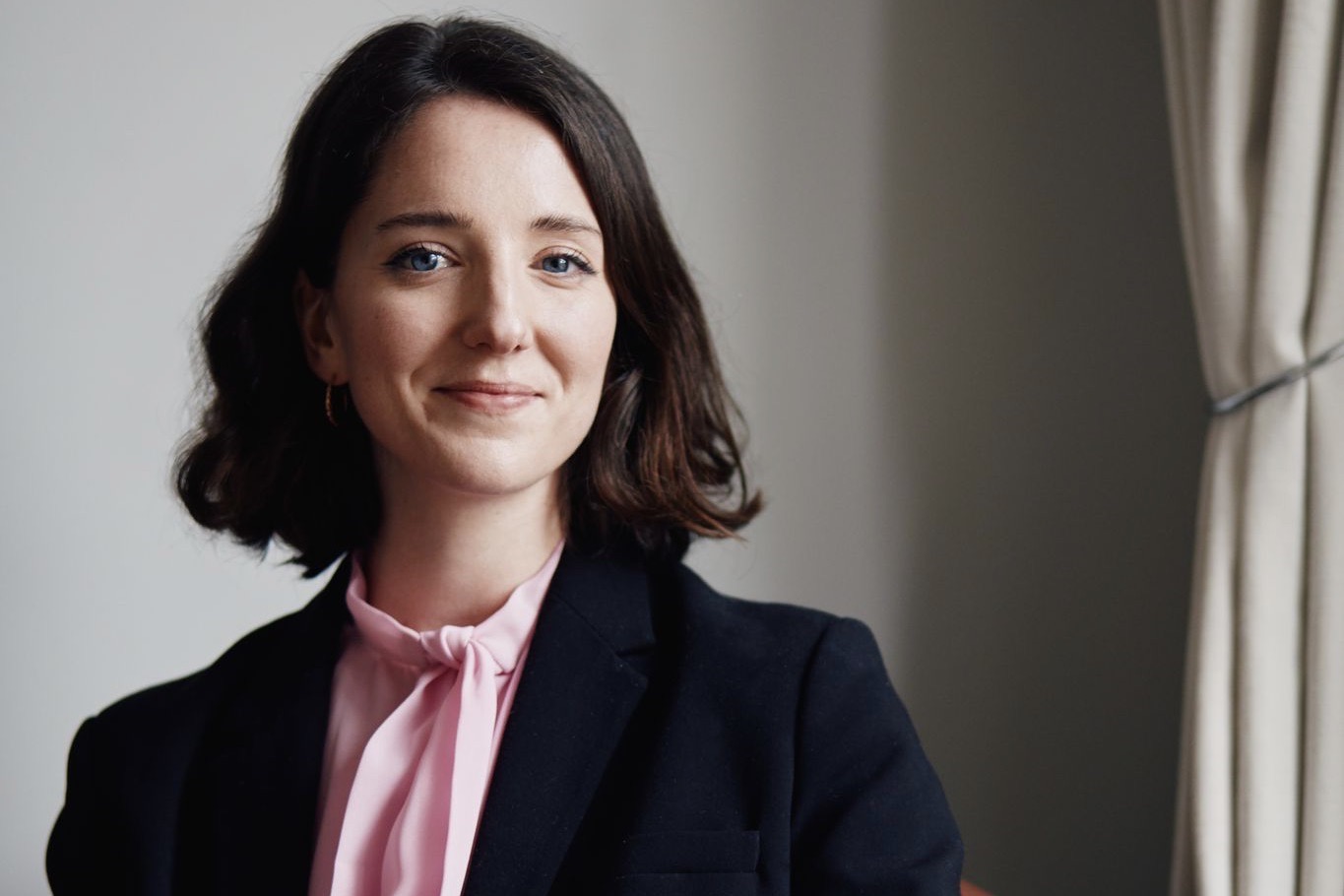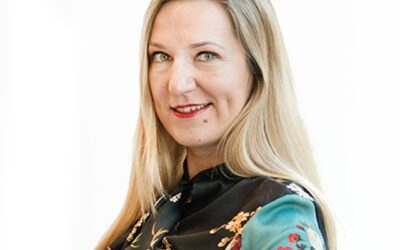Bronagh Monahan is co-founder of MonRae, a talent management and production company that she launched in partnership with former Endemol exec Elspeth Rae in 2021. A singer-songwriter by background, Monahan established her digital-first credentials at Gleam Futures working with talent including Caspar Lee and Victoria Magrath. At MonRae, her goal is to diversify talent’s existing IP and create new content via the production label.
This week, Monahan spoke to The Drop about the profile of talent that MonRae likes to work with, and how the company differentiates itself from larger talent agencies. She also discussed the role of women in the digital-first sector – urging them to be more vocal about their achievements.
Can you tell us how you got into the digital first business?
BM: I’ve been working in this space for about 6-7 years. I came in via Gleam Futures at a time when they were going through a massive expansion. I was thrown in at the deep end, but got to work with top digital first talent like Caspar Lee and Victoria Magrath. My highlights at Gleam included working on road trip format Hit The Road with Caspar Lee and Joe Sugg. Produced by BBC Worldwide (now BBC Studios) it was developed into a live show and toured Europe and Australia. I also managed Victoria when she signed as one of the first influencer ambassadors of L’Oreal Paris.
What were the key lessons you derived from that time at Gleam?
BM: One was that digital first talent doesn’t just have to exist in YouTube. It cemented the idea that the right talent can succeed in broadcast, live tour, publishing, podcasts etc. The other was about the way I liked to work. I originally came to London as a singer-songwriter to pursue a career in music, but I also loved YouTube. So that led me towards being more of a manager/producer, helping talent come up with ideas.
So how did the idea for MonRae come about?
BM: After Gleam, I went freelance in 2018. During that time, I was brought on as a consultant to develop and produce talent-led projects at BBC Studios TalentWorks. A key part of that role was helping them find talent and place it with the right development team. At that time, I was also still managing my own talent and that’s when I first met Elspeth Rae, who was working at Endemol’s Cut & Mustard. I had lots of ideas circulating about whether there was a space for a bespoke, nurturing, boutique management service, different to the big agencies. Then Elspeth asked if I could look after her client DanTDM during her maternity leave. That was a great experience which took my own career away from lifestyle creators more towards gaming. Afterwards, we decided to pool our creative energies and form MonRae Management in April 2021.
So that was still in the midst of the pandemic?
BM: It was, which meant we launched in a kind of a vacuum. But it worked well for us, because the numbers in social media were bigger than ever. It was during this time we met Tom Simons (Tommyinnit), who is one of the most exciting names in this space (50m subscribers across his channels). With Tommy and DanTDM (three YouTube channels, 28 million subs) on our roster we were in a good position to see us through those turbulent time, and now two years on we have eight talents on our books.
How many would you like to see on your talent roster?
9 or 10 is about right. We have two of the biggest stars on YouTube with Dan and Tommy, so that requires servicing. Then we are building a roster of developing talent. We love having a mix of talent that needs nurturing in different ways and requires different sized projects. We’re not here to take on the bigger agencies; we want to create a family-focused feel. I think music managers are a good reference point for us; they often have headline artists and then developing talent coming through.
And what kind of people are you looking for?
BM: People with a voice that can’t be replicated. Sometimes I look at agency rosters and thing that 4 or 5 people on their books are speaking to the same audience – which isn’t what we want. A lot of what we do is gut instinct. We’re not just drawn to numbers, we want people who speak to a particular part of the internet. That could be a finance coach (Bola Sol) or a beauty journalist (Twiggy Jalloh). These unique life experiences are where the best IP comes from – and that’s what our business is about.
Do you only represent digital first talent?
BM: Digital first is key to our model – it’s what we know. We think it’s important have a channel where you can test ideas, even if it still has a relatively small following. One of the biggest advantages of digital first over broadcast is this ability to test idea and get immediate feedback. It’s worth saying also that we focus on YouTubers. Some agencies are working with TikTok talent, but we love YouTube because it has stood test of time. So that’s the place we constantly scour for new talent.
And is gaming key to the business model?
BM: It’s the biggest category on YouTube and our leading talent built their careers in gaming. But we’re not really a gaming company. It’s more that our talent built their career through gaming and are now ready to diversify. The idea is that we represent personalities that have built a following through gaming but have the ability to take those audiences into TV, books, podcasts, live tours and so on. Nurturing this gaming talent felt like a gap in the market for us, so we have really doubled down on it.
Could you give us a couple of examples of how you help them?
BM: Jenny Mustard is a great talent. I met her three years ago at an event on how to make money as a creator. She had built her career in Sweden but was looking to expand her following. Over time, it became clear that Jenny is a really good writer, and she has now written a novel that is coming out in June (Okay Days, Sceptre). That’s been a three-year journey, helping Jenny extend out of YouTube into publishing and now taking the idea out to production companies. Jenny is a really good example of not just seeing YouTubers in one way – because they know how to tell a story.
We’re also working with Tommyinnit on a tour. It takes an awful lot of pre-planning to make sure you create a show that is worth £30 a ticket. Again, Tom is an example of a YouTuber who is also a bona fide live performer. In 2022, he sold out the Brighton Dome in less than 24 hours for his debut show, Tommyinnit & Friends.
Is getting your talent on TV screens the big prize?
BM: I don’t think our talent necessarily need TV. The TV industry is in such a flux that our job is really more about being agile – finding places where there is a receptive audience. The job basically boils down to ‘where is the audience and who will pay?’ TV clearly has a role to play in building credibility and trust, but this business is broader than that. It’s about building a sustainable career by diversifying across multiple platforms.
Having said that, you recently launched your own production division.
BM: Yes, we set up our own label MonRae Productions in 2021, having secured a commission with Sky Kids for our show Let’s Game. That was never really a strategic move, but it’s been good for us. It was one of those situations that came together organically. Sky approached us and asked if DanTDM would be interested in doing something with them. He was a really intriguing choice because he’s a huge name in gaming but has also managed to nurture a family friendly audience. That made him a good fit for kids television. We also managed to get the games publishers involved. They hadn’t really been that bothered about TV before, so to get Sky, DanTDM and the publishers together felt like a real sweet spot for us. We’ve now been commissioned to make three shows for Sky Kids, using our digital first talent.
For us, the beauty of having the production label now is that it’s another way to help our talent build IP. Ultimately, our goal is always to try and give them a sense of ownership in what they are doing – so now we have a way of pitching talent and ideas.
And you are solely focused on kids & family in the TV space?
BM: Yes. We’ve positioned ourselves as a kids and family label because that feels like a place where we can do business and set an example to other YouTubers who are interested in how they can reach a family audience. There are much bigger companies doing stuff for other genres, so we are happy to hunker down here.
How do brands fit into your business model?
BM: Our talent work with brands, but we don’t focus on brand partnerships. Our job is really about creating IP with talent at the centre of it. That said, we have good relationships with top media agencies – because our talent has the kind of engaged audiences that brands are attracted to. As a rule, I’d say we prefer to work with proactive pitches from our talent – rather than waiting for briefs to come in from agencies and brands. It can take longer for it to pay off this way, but it fits better with our philosophy of editorial first, brand second. Some digital first talent is completely focused on driving brand revenues, but I think we’re more about telling stories.
How long will you persist with talent before it’s time to call it a day?
BM: Because we’re a boutique agency with a few major pieces of talent, we can probably give our developing talent more time to flourish than they might get at a bigger agency. Because this is a hard career, it can take time to build momentum. Of course it works both ways, because we also have to provide value and a level of service. Typically, we’ll sit down with talent at the start of each year and talk about what we all want to achieve. But I’d say 2-3 years is a good benchmark in terms of seeing progress. This market changes so quickly that if things haven’t happened after that amount of time then the audience has probably moved on. But at the same time, it’s also true that opportunities in digital first media can come out of nowhere.
How would you say the digital-first industry does in terms of female leadership?
BM: At the top end of the YouTube business, you see a lot of very successful male managers like Reed Duchscher (MrBeast) and Jordan Schwarzenberger (The Sidemen). But there are also a lot of brilliant women doing great things in this space as well – like Lucy Loveridge and Meghan Peterson at YMU. I’d also spotlight female-led businesses like Season25, run by Jessica Joseph, a talent management company repping leading black creators in the UK; and Diving Bell run by Kim Butler, a purpose driven talent management company. Both are doing great things in our industry.
Do you think women’s voices are being heard effectively?
BM: I would like to see great female leaders talk more about what they do – through the press and on panels. They have so many interesting things to say and are well-positioned to start conversations. Perhaps the onus is on publishers and events to make sure they get good female representation. For me, the most exciting things about having more female-led businesses in this industry is the opportunity for more women to have agency and autonomy when it comes to their salaries and maternity leave. One of the main issues in business, for example, is the gender pay gap. MonRae is a business that turns over multiple 7 figures all while maintaining balance with a young family. That’s the progression we like to see and hope more women go on to achieve.
How about the status of female talent and creators?
BM: In general, coverage of the digital first creator economy tends to focus on the most commercial section of the business, which tends to be male dominated. But I don’t think success in social media has to be all about the huge revenue generators. There’s also an opportunity to talk about the different role models doing amazing creative work across the social media spectrum – and I think the voices of female leaders can channel into that diversity. At present, Elspeth and I are talking about setting up a female gaming collective, because that seems to be missing.
Want to know more about MonRae? Why not listen to TellyCast’s podcast interview with Bronagh’s business partner Elspeth Rae – available here.





